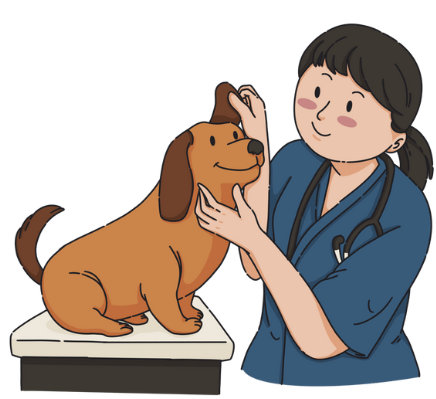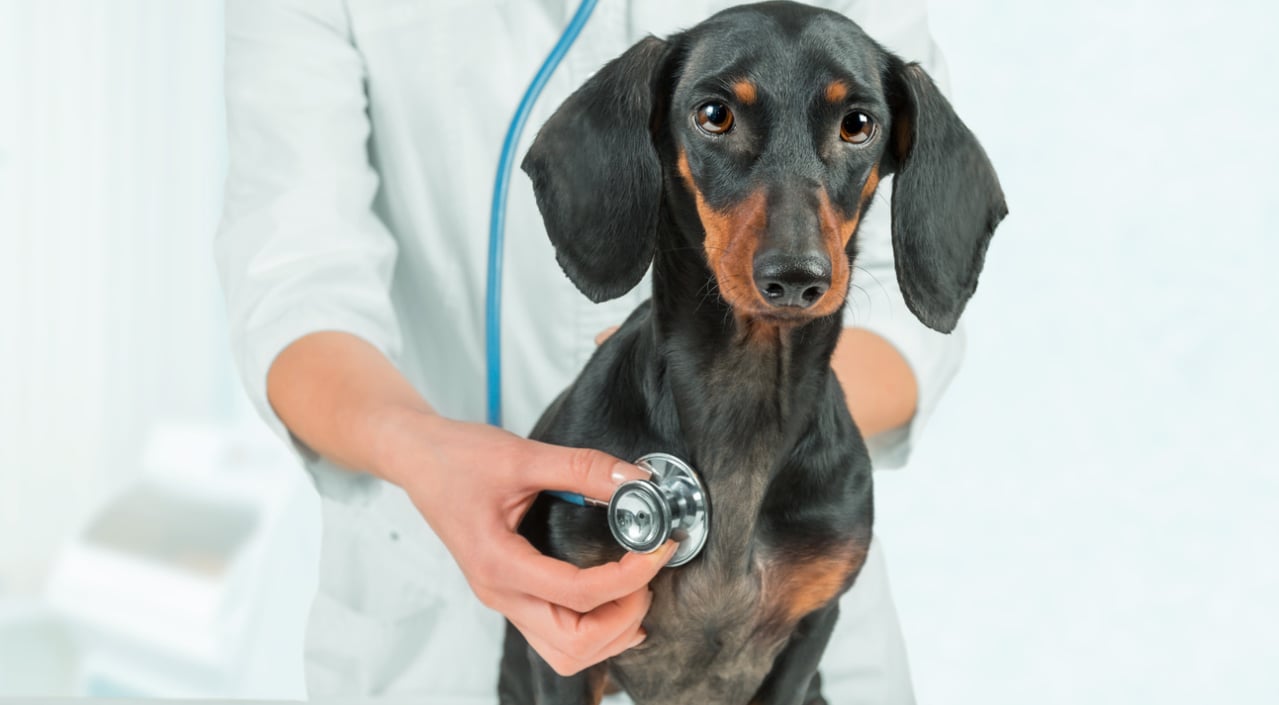Preventative care for pets involves proactive measures taken to ensure their well-being and prevent illnesses before they occur. This approach includes regular health check-ups, vaccinations, proper nutrition, and more.
Why is this important? Keeping your pet healthy year-round not only enhances their quality of life but also reduces the chances of costly medical treatments in the future. Benefits include:
- Longer lifespan: Healthy pets live longer and happier lives.
- Cost savings: Preventing diseases is often cheaper than treating them.
- Improved behavior: Healthy pets are generally better behaved and more active.
In this article, find practical tips on various areas of preventative care, including:
- Regular veterinary exams
- Vaccinations & parasite control
- Dental care
- Nutritious diet & exercise
- Grooming practices
- Stress management
For a reliable vet in San Diego, you can explore services like abdominal exploratory surgery which can be crucial in certain scenarios. Additionally, if you’re based in Rancho Penasquitos, our location there offers comprehensive pet healthcare.
1. Regular Veterinary Exams and Health Check-ups
Having a reliable and experienced vet in San Diego is crucial for ensuring comprehensive care for your pet. Regular veterinary exams help catch health issues early, making treatment more manageable and effective.
Benefits of Regular Veterinary Exams
- Routine check-ups can detect underlying problems before they become serious.
- A trustworthy veterinarian can create personalized health plans tailored to your pet’s needs.
- Access to professional guidance on diet, exercise, and general well-being.
At Vet San Diego, we offer a wide range of comprehensive veterinary services to keep your pets healthy year-round.
How to Make Veterinary Visits Stress-free for Your Cat or Dog
Veterinary visits can be stressful for both pets and owners. Here are some tips to make the experience smoother:
Preparation:
Acclimate your pet to their carrier or leash.
Use pheromone sprays or calming treats.
Handling During Appointments:
Keep calm; pets can sense your anxiety.
Bring favorite toys or blankets for comfort.
Administering Medication:
For dogs: Hide pills in treats like peanut butter.
For cats: Use a pill dispenser or mix with wet food.
Common challenges faced by cat owners include administering medication. Using techniques like wrapping them in a towel (a “purrito”) can help keep them calm while giving pills.
Check out our urgent care services for unexpected health issues.
Regular veterinary exams are the cornerstone of preventative care. They ensure that any potential health issues are identified early, keeping your fur babies happy and healthy year-round.
For more on maintaining your pet’s health, visit our vaccination services, which play an essential role in preventative care.
How to Make Veterinary Visits Stress-free for Your Cat or Dog
Regular exams by a veterinarian are the foundation of preventative care for pets. These full-body check-ups help detect potential health issues early, ensuring timely intervention. Here’s how often you should take your pet to the vet based on their age:
- Puppies and Kittens: Every 3-4 weeks until 16 weeks old
- Adults (1-7 years): Annually
- Seniors (7+ years): Twice a year
The Importance of Early Detection
Early detection tests such as blood work and urinalysisurine analysis play a crucial role in managing health issues like diabetes and kidney disease. They can help identify problems that may not be visible externally. If your pet requires any specialized procedures such as mass removals, it’s important to consult your veterinarian.
Tips for Preparing Pets for Vet Visits
Making vet visits stress-free can be challenging but it’s achievable with some preparation:
- Acclimate Them Early: Regularly handle your pet’s paws, ears, and mouth at home to make them comfortable with examinations.
- Carrier Training: For cats, leave the carrier out in living spaces so it becomes familiar. Reward them with treats when they explore it.
- Positive Reinforcement: Use treats and praise during vet visits to create positive associations.
Administering Medication to Cats
One common challenge is giving pills to cats. Here are some tips:
- Hide Pills in Food: Use pill pockets or hide the medication in wet food.
- Pill Guns: These tools help place the pill at the back of the cat’s throat, minimizing struggle.
- Calm Environment: Ensure a quiet, stress-free setting when administering medication.
For detailed guidance on handling specific health concerns and medical procedures, visit Vet San Diego.
2. Vaccinations, Parasite Control, and Other Preventive Measures
Ensuring Adequate Protection: Vaccination Schedules for Your Pet
Vaccinations are a cornerstone of preventative care. Establishing a proper vaccination schedule in consultation with your San Diego vet is essential for safeguarding your pet’s health. Core vaccines, such as those for rabies, distemper, and parvovirus, are typically recommended for all pets.
Non-core vaccines, on the other hand, depend on factors like your pet’s lifestyle and the prevalence of certain diseases in San Diego.
Key Points to Consider:
- Core Vaccines: Essential for all pets to prevent widespread and potentially fatal diseases.
- Non-Core Vaccines: Tailored based on factors like travel habits and local disease outbreaks.
Consulting a San Diego pet hospital can help you navigate these decisions effectively. They will provide guidance on the timing and frequency of vaccinations, ensuring your pet remains protected year-round.
Topical vs. Oral Flea and Tick Preventatives: Choosing the Right Option
San Diego’s warm climate makes it a hotspot for fleas and ticks year-round. Effective parasite prevention is crucial to keep your pet healthy.
Options Available:
- Topical Treatments: Applied directly to your pet’s skin. They offer localized protection and are usually effective within 24 hours.
- Oral Medications: Ingested by your pet and work systemically to kill parasites. These often provide longer-lasting protection but may require a prescription from your vet.
Each option has its pros and cons. Topical treatments are generally easier to administer but might not be suitable for pets with sensitive skin. Oral medications can be more effective but may come with side effects.
Collaborate with your San Diego vet to choose the best preventive measure tailored to your pet’s needs. Regular check-ups can help monitor their effectiveness and make adjustments as needed.
Maintaining a consistent vaccination schedule and choosing the right flea and tick preventative can significantly improve your pet’s quality of life. For more tips on keeping your furry friend healthy, visit our pet healthcare services page.
Topical vs. Oral Flea and Tick Preventatives: Choosing the Right Option
Keeping your pet safe from parasites is crucial, especially in San Diego’s climate. Both topical and oral flea and tick preventatives offer effective solutions to this issue.
Topical Treatments
- Spot-on applications: Applied directly to your pet’s skin, usually between the shoulder blades.
- Effectiveness: Provides a barrier that kills or repels fleas and ticks on contact.
- Frequency: Typically reapplied monthly.
Oral Medications
- Chewable tablets: Easy to administer as part of their regular diet.
- Effectiveness: Works systemically to kill fleas and ticks once they bite your pet.
- Frequency: Often given monthly but can vary depending on the product.
Each method has its pros and cons, so consult your San Diego vet to determine the best option for your furry friend based on their lifestyle and health needs.
Year-round parasite prevention is essential due to San Diego’s mild climate, which allows fleas and ticks to thrive year-round. So, stay vigilant and keep your pet protected!
3. Dental Care as a Crucial Part of Overall Wellness
Dental health significantly impacts the overall well-being of pets. Poor dental hygiene can lead to issues like bad breath, gum disease, and even systemic infections. Maintaining a routine for home dental care is essential for preventing these problems.
Common Dental Issues in Pets
Pets may face various dental issues, including:
- Plaque buildup
- Gingivitis
- Tooth decay
Regularly checking your pet’s mouth can help catch these issues early.
Effective Home Dental Care Routines
Brushing your pet’s teeth might seem daunting, but it’s crucial. Here are some tips:
- Use pet-safe toothpaste: Human toothpaste can be harmful.
- Start slowly: Gradually get your pet accustomed to having their teeth brushed.
- Incorporate dental chews and toys: These can help reduce plaque and tartar.
Professional Dental Cleanings
Even with diligent home care, professional cleanings are necessary. Consider scheduling a cleaning at least once a year at a San Diego veterinary clinic like San Diego Vets. Professional cleanings ensure that any hard-to-reach areas are thoroughly cleaned, keeping your pet’s mouth healthy and fresh.
4. Nutritious Diet, Weight Management, and Exercise
Proper Nutrition for Pets
Ensuring your pet receives proper nutrition is crucial for their overall health. Different life stages and species have unique dietary needs. Puppies and kittens require food rich in proteins and fats to support growth, while senior pets may need a diet lower in calories but higher in fiber to maintain healthy digestion.
Maintaining Ideal Weight
Keeping your pet at an ideal weight involves:
- Portion control: Measure food portions based on your vet’s recommendations.
- Regular exercise: Engage your pet in daily activities like walks, playtime, or agility training.
A well-maintained weight helps prevent issues like diabetes, arthritis, and heart disease.
Mental Stimulation
To keep pets mentally engaged:
- Interactive toys: Puzzle feeders or treat-dispensing toys can make mealtime fun.
- Training sessions: Teach new tricks or commands to stimulate their mind.
These activities help curb behavioral problems and contribute to a happy, healthy pet.
5. Grooming Practices for Healthy Skin and Coat
Regular grooming is important for keeping your pet healthy and happy. It not only helps maintain their physical appearance but also promotes good emotional well-being. By following proper grooming practices, you can prevent skin problems, reduce the risk of infections, and strengthen the bond with your furry friend.
Understanding Your Pet’s Grooming Needs
Different breeds have different grooming requirements. Here are some breed-specific tips to keep in mind:
Dogs
- Long-haired breeds like Golden Retrievers need daily brushing to prevent their fur from tangling and matting.
- On the other hand, short-haired breeds like Beagles may only need to be brushed once a week.
Cats
- Short-haired cats usually require less brushing and can benefit from a weekly grooming session.
- However, long-haired cats such as Persians need more frequent attention and may benefit from daily combing to prevent their fur from getting tangled.
Essential Grooming Techniques
When it comes to grooming your pet, there are two key techniques that you should focus on:
1. Coat Brushing
Regular brushing helps remove loose hair, prevents matting, and distributes natural oils throughout your pet’s coat. Here are some tips for effective coat brushing:
- Use a brush specifically designed for your pet’s coat type (e.g., slicker brush for long hair, bristle brush for short hair).
- Always brush in the direction of hair growth to avoid causing any discomfort or pain to your pet.
- Take your time and be gentle, especially when dealing with tangles or sensitive areas like the belly or tail.
2. Nail Trimming
Keeping your pet’s nails at an appropriate length is crucial for their overall comfort and mobility. Here’s what you need to know about nail trimming:
- Use pet-specific nail clippers or grinders that are designed for safe and precise trimming.
- Be cautious not to cut too close to the quick (the sensitive part of the nail that contains blood vessels), as it can cause pain and bleeding.
- If you’re unsure about how to trim your pet’s nails properly, consult a professional groomer or veterinarian for guidance.
Remember, grooming should be a positive experience for both you and your pet. Take it slow, use treats or rewards to reinforce good behavior, and always prioritize their comfort and safety.
For more detailed grooming advice tailored to your pet’s breed, consult with San Diego Veterinary experts.
6. Stress Management and Mental Stimulation
Stress Management
Stress can harm your pet’s health, causing problems like anxiety, digestive issues, and a weakened immune system. Here are some ways to create a calm environment at home:
- Safe Spaces: Make sure your pet has a quiet, cozy spot to go to when they’re feeling overwhelmed.
- Routine: Stick to a consistent daily schedule for feeding, walks, and playtime to give them a sense of stability.
Mental Stimulation
Keeping your pet mentally stimulated is just as important as physical activity. Boredom can lead to destructive behavior, so try these stimulating activities:
- Puzzle Toys: Get puzzle toys or treat-dispensing gadgets that challenge your pet’s problem-solving abilities.
- Interactive Play: Play interactive games like fetch or hide-and-seek to keep their minds alert and engaged.
🐾 For more tips on keeping your pets healthy, check out our San Diego Veterinary services page!
7. The Role of Pet Owners in Maintaining Good Eye Health
Just like humans, pets are also prone to various eye conditions. As a responsible pet owner, it’s essential to be aware of these common eye problems:
- Conjunctivitis: Inflammation of the eye’s lining.
- Cataracts: Clouding of the eye lens.
- Glaucoma: Increased pressure inside the eye.
Practical Tips for Supporting Eye Health
To ensure that your furry friends have healthy eyes, here are some simple yet effective tips you can follow:
- Regular Observation: Keep an eye out for any signs of redness, discharge, or cloudiness.
- Cleanliness: Gently clean around your pet’s eyes using a damp cloth to remove any debris or discharge.
- Routine Vet Visits: Schedule regular check-ups with your San Diego veterinary clinic to catch any issues early.
Additional Tips
Apart from the basic care mentioned above, here are a few more things you can do to promote good eye health in your pets:
- Proper Nutrition: Ensure your pet’s diet includes nutrients that support eye health.
- Avoid Irritants: Keep your pet away from smoke and harsh chemicals that could irritate their eyes.
For more information on how to take care of your pets, check out our comprehensive care services.
8. Recognizing the Signs of Pain or Discomfort in Pets
Pets are masters at hiding pain, so it’s crucial to stay vigilant for subtle signs. Look out for:
- Changes in Behavior: Increased aggression or withdrawal.
- Altered Mobility: Limping, reluctance to move or jump.
- Vocalizations: Whimpering, growling, or unusual meowing.
- Appetite Changes: Loss of interest in food or difficulty eating.
- Physical Signs: Swelling, licking specific areas excessively.
If you notice any concerning symptoms, seek immediate veterinary attention. San Diego pet owners need to be aware of emergency vet clinics like Animal Emergency Clinic of San Diego and Emergency Veterinary Hospital San Diego. Early detection can make a significant difference in your pet’s health and comfort.
Stay proactive and ensure your furry friend gets the care they need promptly.
9. The Role of Pet Insurance in Facilitating Preventative Care Measures
Having a comprehensive pet insurance policy can make a significant difference for pet owners in San Diego. A good policy covers various aspects of preventative care, including regular vet visits, vaccinations, and routine health check-ups.
Benefits of Pet Insurance:
- Affordability: It reduces the financial burden of unexpected medical expenses, making it easier to budget for routine care.
- Comprehensive Coverage: Many plans cover not just emergency treatments but also regular preventative measures like dental cleanings and parasite control.
- Peace of Mind: Knowing that your furry friend is covered allows you to focus on their wellness without stressing over costs.
“Investing in pet insurance ensures you can prioritize your pet’s health without worrying about the cost.”
Choosing the Right Plan
Select a policy that aligns with your pet’s needs and lifestyle. Consult your San Diego veterinary clinic for recommendations tailored to your specific situation.
Explore different plans and consider factors such as:
- Coverage limits
- Deductibles
- Reimbursement rates
Learn more about the benefits of regular vet visits and how to keep your pet healthy at our service page.
Conclusion
Prioritizing preventative care tips for your pets is essential for their long-term health and happiness. Proactive measures keep them healthy year-round and minimize the risk of serious illnesses.
Key takeaways from this guide include:
- Regular veterinary exams and health check-ups: Make those vet visits stress-free for both you and your pet.
- Vaccinations and parasite control: Stay on top of vaccination schedules and choose the right flea and tick preventatives.
- Dental care: Incorporate home dental routines and schedule professional cleanings.
- A nutritious diet, weight management, and exercise: Maintain a balanced diet and ensure regular physical activity.
- Grooming practices: Regular grooming keeps their skin and coat healthy.
- Stress management: Create a calming environment to reduce stress.
For pet owners in San Diego, scheduling a nose-to-tail exam with a trusted vet is a great step. Consider local options like Black Mountain Animal Hospital or Veterinary Specialty Hospital of San Diego.
Taking these preventative steps ensures that your furry friend enjoys a vibrant, healthy life by your side.
Start today by booking that vet appointment!
FAQ (Frequently Added Questions)
Preventative care for pets involves proactive measures taken to maintain their health and prevent potential illnesses or conditions. It is important because it can help identify health issues early, leading to more effective treatment and lower healthcare costs in the long run.
Keeping pets healthy year-round through proactive care measures can lead to a longer and happier life for them. It also reduces the risk of developing serious health issues and minimizes the financial burden on pet owners associated with treating preventable illnesses.
Pet owners should focus on regular veterinary exams, vaccinations, parasite control, dental care, nutritious diet and weight management, grooming practices, stress management, mental stimulation, eye health, recognizing signs of pain or discomfort, and having pet insurance. Practical tips for each area will be discussed in detail throughout the article.
Pet owners can make veterinary visits stress-free for their cat or dog by preparing them in advance, using positive reinforcement techniques, and seeking advice from their veterinarian on handling specific challenges. The article will provide detailed tips on how to achieve this.
Vaccinations play a crucial role in protecting pets from infectious diseases by stimulating their immune system to create defenses against specific viruses or bacteria. The article will discuss recommended vaccination schedules and the importance of year-round parasite prevention for pets in San Diego.
Dental care is crucial for pets' overall wellness because it helps prevent dental diseases that can lead to other health issues. The article will provide guidance on effective home dental care routines and the role of professional dental cleanings for pets in San Diego.










